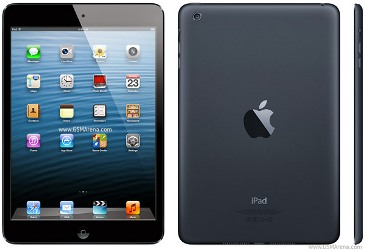Frank Gillett, vice president and Principal Analyst, Forrester Research said there are some interesting dynamics in the enterprise mobility space in Asia Pacific at the moment.
The penetration of technologies like BYOD, customer mobility, and employee-facing mobile apps has been relatively low in many Asian countries, putting the region’s companies behind their North American peers for the most part.
I still speak with CIOs and marketing leaders about why they should have a mobility strategy or how they can help their employees stay productive regardless of location.
Don’t get me wrong: There are a lot of smartphones and tablets — particularly iPads — in businesses across the region. But many of these devices, especially the tablets, were personally acquired by employees — so they’re an “accessory tool,” not a core productivity tool; often, corporate tech management doesn’t support them and app-dev teams don’t develop for them.
Also read: Apple iPads gain biz from enterprises
But this is changing, and Microsoft has been taking a good share of enterprise mobility deals in Asia. It’s been hungry for these deals — even to the point of hand-holding clients through the proof-of-concept and RFP processes.
Microsoft is throwing both its own and its partners’ resources at these opportunities — and demonstrating to clients that Windows 8.1 is the best platform for their touch-friendly and mobile requirements. Android is challenged by a fragmented hardware partner ecosystem (although Samsung has developed a decent partner community in Asia), and Apple’s lack of strong SI partner network means that it often comes to these deals as a hardware provider with limited systems integration capabilities.
The reality is that there are a lot of iPads in businesses across Asia Pacific, and companies are looking to formally support them — but Microsoft has been the standout provider here, stealing business away from Apple. If this trend continues, Apple has a lot to lose.
This is the key benefit that Apple gets from its partnership with IBM: a strong partner that can operate across geographies and help with the entire enterprise mobility strategy, from hardware to apps and systems integration. This can shore up Apple’s position with Asian businesses and position it for growth as the region’s companies look to move beyond allowing mobility to actively encouraging it.
Frank Gillett, vice president and Principal Analyst, Forrester Research, said: “Apple customers are at the forefront of the change in behavior that leading customers adopt as they gain experience with using their smartphones to solve problems in context.”
In particular, Apple’s earnings will show how rapidly China Telecom customers are embracing their new LTE network, and the role of the iPad and Mac in complementing the iPhone.
Forrester in a research note said it believes that it’s still early in the mobile mind shift that consumers around the world are embracing, and that Apple’s results will show that its products continue to play a leading role in that shift.

